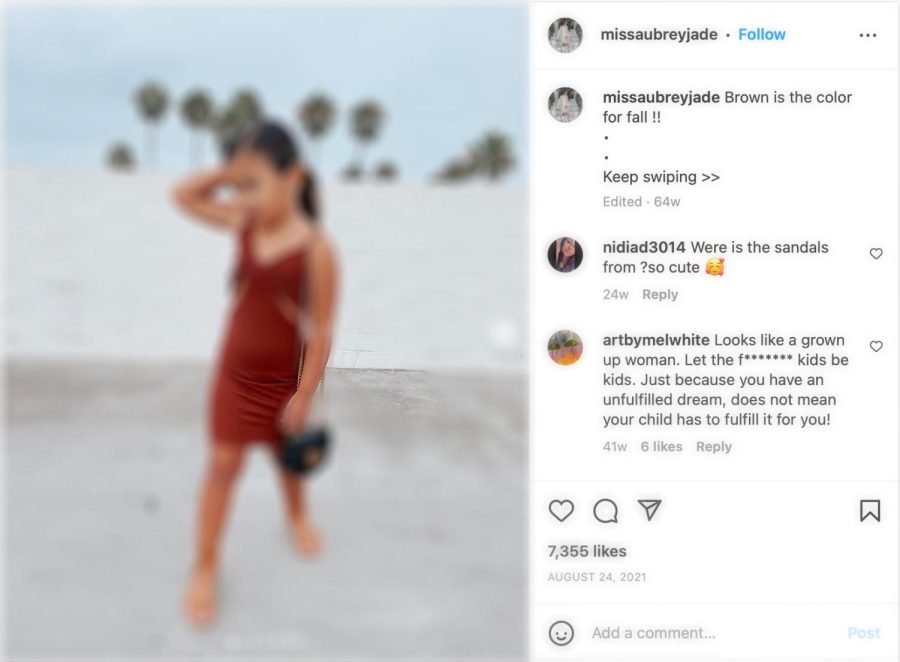New Labor Laws Are Needed to Protect Child Influencers
Behind the glowing ring lights, TikTok dance crazes and over-edited Instagram pictures, lies a growing ethical concern for the privacy of child influencers. As child labor laws do little to protect their rights, there is certainly a gray area regarding social media stardom.
Coogan’s Law, also known as The California Child Actor’s Bill, mandates that 15% of their income must enter a trust that is protected and inaccessible until they reach the age of 18. However, this law only exists within certain states.
The law notwithstanding, managers and parental figures are entrusted with handling their children’s finances. It leaves room for adults to abuse the lack of legal protection; those actively running social media accounts behind their young employees can exploit this loophole for profit.
For instance, brand deals are generally not announced by child influencer accounts. The ad revenue from these contracts is commonly left in the control of a parental figure as safety measures on YouTube, Instagram and other social media platforms prohibit children under 13 years old from ownership of their accounts. It hinders child influencers’ access to their pictures and data, leaving their privacy in the hands of managers.
After surveying mothers across Europe, North America, Australia and Japan, the internet security company AVG discovered that the average “digital birth,” or first exposure to the Internet, for children occurs at around six months old.
AVG’s CEO JR Smith says, “A quarter of babies have scans posted online before they have even physically come into the world.” He asks parents to consider that they’re creating a digital footprint for their children without formal consent.
The company’s research points to the violation of privacy that follows today’s youth from before birth to when they become legal adults. Parents and adults who run children’s accounts should be thoroughly regulated. Once minors fall into the public spotlight, there’s little to guard them against potentially harmful exposure to the world.
The issue of children’s emotional and mental well-being arises from the invasive nature of a social media presence. Licensed clinical child psychologist Lindsey Cooley addressed this issue in an interview with ABC News. “I think what we’re going to see is a lot of fracturing of identity on some level where kids will be even more disjointed when it comes to who they are.”
Over time, they can become so conditioned to the presence of cameras and phones that the divide between their online personas and real personalities evaporates. This poses a danger to children’s cognitive growth since the constant pressure to perform with a virtual facade can weaken a developing identity.
Without authentic self-expression, child influencers risk falling prey to the adolescent belief of an “invisible audience.” The term refers to the anxiety of being regularly watched and ridiculed, one that most teenagers age out of as they mature. However, Cooley hypothesizes that child stars find it difficult to let go of their grasp on this belief while their time in the spotlight rapidly leaks into their personal lives. Social media’s inability to modulate the privacy of child influencers has become increasingly damaging to their psyche and violates the individual rights to which American citizens are entitled.
Minors under the control of social media accounts on platforms that they do not have access to directly contradicts the Fair Labor Standards Act of 1938 (FLSA). Also known as child labor laws, the FLSA is designed to protect youth rights, including education and the prohibition of careers deemed hazardous to their health. However, there is uncertainty in the legal world concerning whether or not a child influencer qualifies as an occupation.
The misclassification of these accounts as adult-run rather than under the ownership of a child is inherently unethical. It leaves excessive space for managers to abuse the revenue and power that they derive from young influencers. Not only is this unlawful, but it also foreshadows the increasing danger of online personas. If these parents-turned-employers can continue to successfully jeopardize the well-being of children by placing them in the gray area of the workforce, it can undermine the fabric of their development.
Kids with thousands or millions of followers are deprived of the opportunity to grow up in a normal environment, with no room to experience the true innocence of childhood. Adults and parents who exploit their children’s privacy for financial gain should also help to expose the harm that comes from a lack of regulation, and this needs to become a larger concern in our society.
Olivia Teare, FCRH ’26, is an anthropology major and linguistics minor from Duxbury, Mass.










































































































































































































